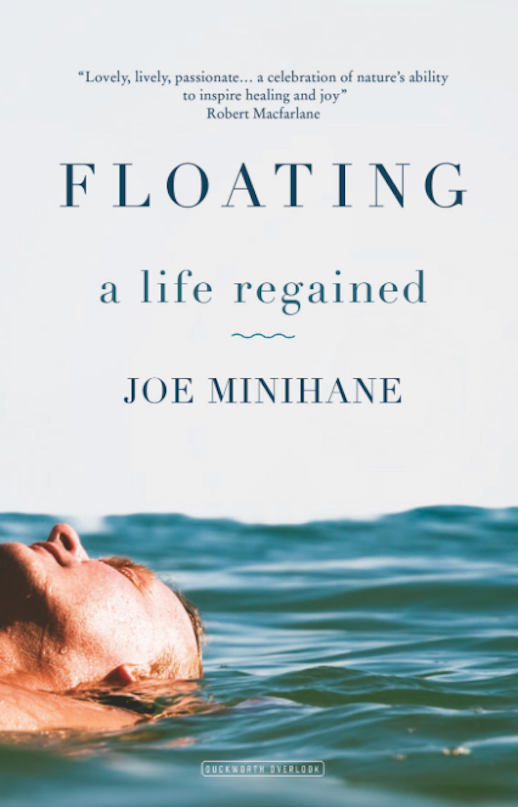 Joe Minhane’s Floating: A Life Regained is out now in hardback via Duckworth Overlook, and is available here. Fellow wild swimmer Keshia Glover gives it a once-over:
Joe Minhane’s Floating: A Life Regained is out now in hardback via Duckworth Overlook, and is available here. Fellow wild swimmer Keshia Glover gives it a once-over:
Travel has long been deemed therapeutic. It provides challenge and reward, giving the traveller opportunity to grow, learn and heal. Floating — the culmination of Joe Minihane’s ‘Waterlog Reswum’ project — chronicles the writer’s travels across Britain, swimming in each of the locations visited by Roger Deakin in his classic Waterlog. Each ‘swim’ can be dipped into; a string of immersive green dreams, from still, pollen-dusted ponds of warm days to the cold churning power of the sea.
As it is for many of us, Joe Minihane found swimming first and Waterlog second. Realising the water was an effective tonic in his growing struggle with anxiety — in keeping with Deakin’s assertion that water holds a magical ability to cure — he writes: ‘In swimming I found the only thing that truly broke me out of my anxious cycle for longer than a few moments…I swam to fix myself.’ Something within Waterlog beckoned towards respite, something to be approached and swum and conquered.
Swimming in Deakin’s wake seems an almost shamanic act. Once upon a time, it was customary to pull on the skin of a bear to don the animal’s characteristics; its strength, its fearlessness. Here in Floating, Joe Minihane’s recreation of Deakin’s adventure is not unlike pulling on the spirit of the unashamed, daring individuality that Waterlog embodied. Like Deakin before him, Minihane reminds us that wild swimming provides a valuable route to reconnect with nature and take a step back to reassess our struggles.
With each new writer’s dip into it, the identity of wild swimming grows and strengthens. When Joe Minihane embarked on his adventure, roughly fourteen years had passed since Deakin’s Waterlog journey. In those fourteen years, outdoor swimming has grown in popularity, or maybe more accurately, acceptability: it has been commercialised, and perhaps even gentrified. Some of the locations featured in Waterlog are much changed by the time they are revisited in Floating — Minihane finds some have gained ‘no swimming’ signs, others litter and graffiti. Done-up lidos and lake swimming at festivals are never a bad thing, though there is still a swimmer’s selfish instinct to protect their places for peaceful solitary communion with nature.
Greater popularity brings greater awareness of the dangers involved in wild swimming, and many sobering reminders of this crop up throughout the book. It is important to bear in mind that Waterlog was never intended as a guide book: some of the swims related in Floating push the limits of cold endurance I would personally consider while prioritising well-being and safety. In one anecdote, for example, Minihane relays giddy amusement after a particularly cold dip, which evolves into a sobering realisation of how close to hypothermia he has in fact come.
There is, however, also a lot of joy in the vibrant social side to the swims recorded in Floating and the affectionately-described cast of supportive friends acquired along the way. Outdoor swimming has great social potential and as swimmers, we always need people who ‘help us into the water’ – though encouragement or competitiveness.
Much like the book which inspired it, this is an effortless, absorbing read. Floating highlights the beautiful variety of outdoor swims possible in Britain and the great positive impact they can have. It’s perfect for this time of year, when the world is greening and the sun is starting to warm the rivers, as a preparation for bravely diving in to enjoy the water.
*
Floating: A Life Regained is available here in the Caught by the River shop.